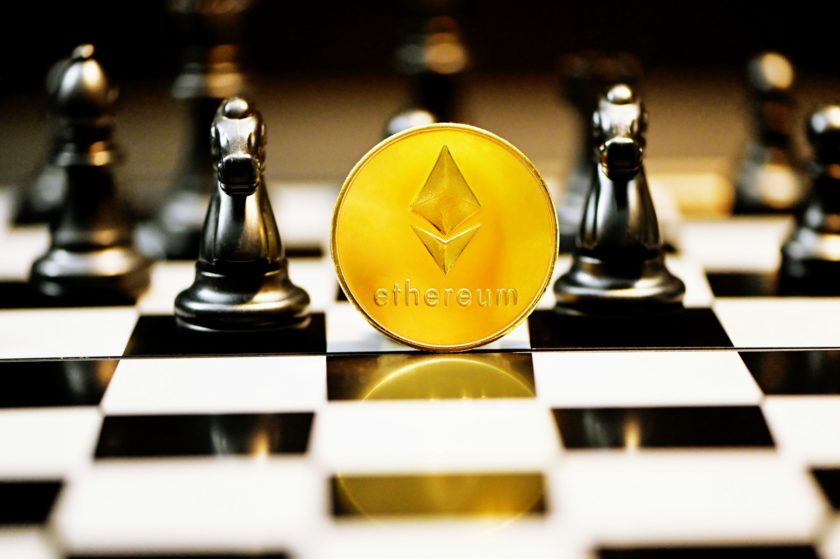Ameen Soleimani Spanks Ethereum, Suggests Leadership
February 10, 2019 by Paul de Havilland
Ameen Soleimani has given Ethereum developers a spanking over their slow progress in upgrading the network. The SpankChain CEO launched a scathing attack on the project, arguing Ethereum 2.0 is simply taking too long to be deployed.
Also read: A Scrum, The Lightning Network, and the Return of the Maximalist
We love hearing from our readers. Sound off on our Twitter or Facebook pages
Check out our insights & interviews with influential insiders on the Bitsonline YouTube channel
And for the only source of UNFILTERED trading volume, head to CoinBillboard
SpankChain CEO Gives Ethereum a Spanking or Two
SpankChain is a peer-to-peer payment platform for adult performers. Its founder and CEO, Ameen Soleimani, left ConsenSys to start the venture, and has always been a supporter of Ethereum, with his company’s tokens running on the network. But it looks like he is turning up the heat on the third largest crypto by market cap.
Soleimani outlines a number of concerns he has in a report entitled “The State of Ethereum 2.0”, published in conjunction with consultancy firm Kyokan. He cites a lack of funding, a lack of vision among the development team members, and–controversially–a lack of leadership.
Outlining Ethereum 2.0
The report begins with Soleimani outlining what Ethereum 2.0 is before proceeding to describe the problems it is, in his eyes, facing:
“Ethereum 2.0 refers to a set of specifications that will dramatically improve the performance characteristics of the Ethereum blockchain. As of this writing, it does so by merging and improving upon research from two older specifications: “Casper,” which introduces a proof-of-stake consensus mechanism, and “sharding,” which introduces the splitting of transactions across a number of “shards” secured by the main chain. These specs confer the following benefits to Ethereum users:
Proof-of-stake removes the need to invest in equipment and burn electricity to secure the chain. Furthermore, it improves Ethereum’s finality characteristics by making certain types of 51% attacks dramatically more expensive and reducing reliance upon mining cartels to secure the chain. Sharding improves the Ethereum network’s maximum transactions per second by orders of magnitude.”
The SpankChain heavyweight then identifies poor coordination between teams, different interpretations of what completion will look like, and calls for Ethereum to choose a project lead.
Ameen Soleimani Wants a Leader to Emerge
Ethereum’s scaling problems are well documented. CryptoKitties clogged up the network significantly at the end of 2017. Its Constantinople upgrade, slated for January 16th, has been postponed to February 27th and will be immediately followed by a partial undoing with a second Constantinople–in recognition of the last-minute bug discovery that postponed it in the first place.
Meanwhile, DApps have been migrating to, or choosing, TRON or EOS over Ethereum, as the original smart contract platform reels from its reputation as a slow-moving, ungainly beast. BitGuild is a prime example of an Ethereum defector. Hence, Soleimani’s suggestion of a lead developer.
A Decentralized Platform With a Leader… That Ain’t Right, Right?
Ethereum’s increasing incapacity to host DApps and smart contracts efficiently–or at least the appearance thereof–means it needs upgrades to happen fast.
It is possibly no accident that TRON has strong leadership in Justin Sun–not just a flashy frontman but a quick-thinking businessman with lofty ambitions. EOS also has a unique leadership structure that, while also suffering from controversy, has enabled it to scale and remain stable (albeit after a stuttering start).
But the Ethereum developer and founder community is having none of Ameen Soleimani’s talk of appointing leadership. Its spiritual leader, the famous Ether-non-giver, appears motivated to reduce the Buterin footprint on the platform. Ben Edgington from the PegaSys group dismissed talk of needing a project lead:
“This is disappointing talk, in my view. It’s old-school. Becoming just like all the other centralized development projects (Cardano, Dfinity, Polkadot…). It’s throwing the baby out with the bathwater. Ethereum’s superpower is its diverse and engaged community. The better path is to learn to do decentralization better.”
Indeed. But that learning needs to come fast or, as the SpankChain pioneer Ameen Soleimani fears, Ethereum may run out of time before losing what had been its first-mover advantage over EOS and TRON.
Have your say. Would you like to see leadership at Ethereum to help steer the ship?
Images via Pixabay





